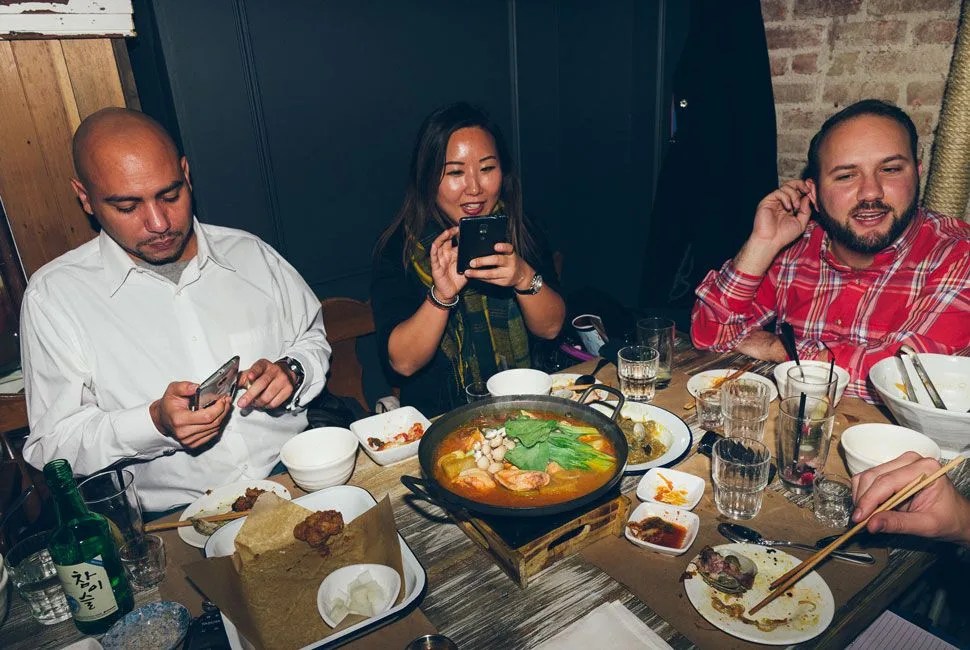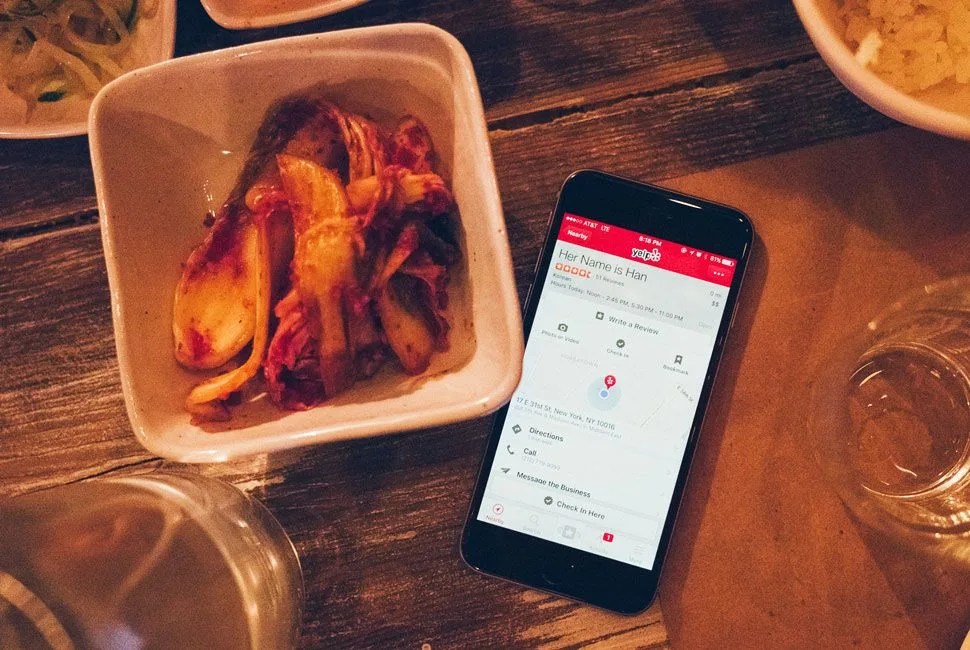In Matt Stone and Trey Parker’s imagining, Yelp reviewers in South Park discreetly reveal their status as amateur “food critics” in a whisper to a restaurant host, who then whisks them off to a table of their choosing, before turning up the lights a bit, per their request. In reality, in mid-November, two “Elite Yelpers,” a status given to a select group who received nominations for their reviews, sat outside of a new restaurant in Koreatown, Manhattan called Her Name Is Han. The man and woman practiced in law and in finance, respectively, when they weren’t reviewing restaurants. They were already deep in conversation by the time my photographer and I arrived. A third Elite, this one in advertising, was on his way to join us.
We were ushered a little ways into the restaurant, a long rectangular space that shifts to the left at its midsection before continuing toward the back, like a Tetris piece made of exposed brick, spider-like chandeliers and shelves lined with bottles of lychee and grapefruit juice for cocktails. Our table was next to the kitchen station, where servers in white aprons skirted in blue and leather straps hovered.
The restaurant was packed, but the host had reshuffled some of the tables to accommodate us after I noted that the reservation included three prolific Yelpers. It was straight from the script, and before we had all hung our jackets on the back of the chairs, someone already mentioned the South Park episode that had aired one month prior.
The three Elite Yelpers had become prolific reviewers, logging in a collective 1,887 reviews, over 3,600 friends and 23 years of Elite status for reasons divorced from mock fame or importance.
“I watched it yesterday, just to see what it’s all about,” said the banker. And, noting that the reservation was made easier by their statuses, added, “I was wondering if it works; I guess it does.”
“I’ve never tried it. Have you?” the banker asked the lawyer. “No, I don’t do that. I know what it’s like when someone wants to spit in your food,” he responded. “No one ever knows I’m on Yelp.” The banker nodded just as the third Yelper, an advertiser, got to the table.
“Sorry, I’m never the one that’s late.”


